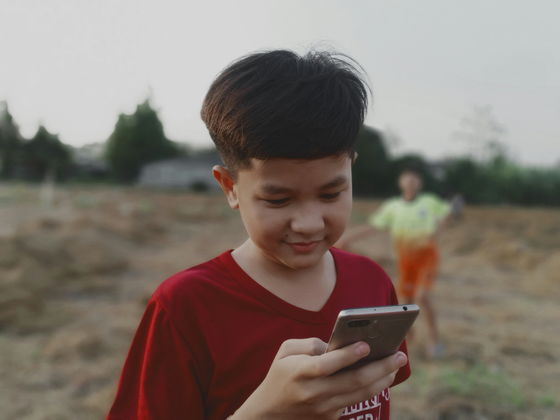Study reveals that children who use social media perform worse on reading comprehension and memory tests two years later than those who don't

A new study has found that
Social Media Use Trajectories and Cognitive Performance in Adolescents | Adolescent Medicine | JAMA | JAMA Network
https://jamanetwork.com/journals/jama/article-abstract/2839941

Social media use linked to lower reading, memory scores in preteens : Shots - Health News : NPR
https://www.npr.org/sections/shots-health-news/2025/10/13/nx-s1-5571050/social-media-teens-brains-reading-memory
Study: Social Media Might Stunt Students' Intellect | Newsmax.com
https://www.newsmax.com/health/health-news/students-social-media-education/2025/10/14/id/1230253/
Increasing Social Media Use in Preteens May Be Hurting Cognition Too | MedPage Today
https://www.medpagetoday.com/pediatrics/generalpediatrics/117911
On October 13, 2025 local time, a research paper investigating the impact of social media use on cognitive ability in adolescents was published in JAMA , one of the world's most prestigious medical journals published by the American Medical Association.
Most similar studies to date have focused on the impact of social media use on children's mental health. One of the study's authors, pediatrician Jason Nagata of the University of California, San Francisco, said of the significance of this paper, 'Especially as many schools are now considering banning cell phones, it's extremely important to understand how social media use in the classroom specifically affects learning.'
To investigate how social media affects children's cognitive abilities, Nagata and his team used data from the ABCD Study, a large-scale study of adolescents. The ABCD Study surveys children's social media usage annually and administers various learning and memory tests every two years.

Nagata and his team used survey data from over 6,000 children aged 9 to 10 years old to classify them into three groups based on changes in their social media usage patterns: The first group consisted of children who rarely or never used social media at both the initial survey and the two-year follow-up (approximately 58%); the second group consisted of children who rarely used social media at the initial survey but spent about an hour per day on social media at the two-year follow-up (approximately 37%); and the third group consisted of children who spent more than three hours per day on social media at the follow-up (approximately 6%).
The children were given several tests to assess their cognitive function at the start of the study and again at a two-year follow-up, including an oral recognition test to assess their reading comprehension and vocabulary, and a picture-vocabulary test to test their ability to match words they heard with the correct picture.
The study found that even children who used social media for about an hour a day by the age of 13 performed an average of 1 to 2 points lower on tests of reading comprehension and memory than children who rarely used social media. Furthermore, children who used social media for more than 3 hours a day performed up to 4 to 5 points lower on tests of reading comprehension and memory than children who rarely used social media.

'This really speaks to the dose effect of apps: high use can be a big problem, but even low use can be a problem,' said Sheri Madigan, a psychologist at the University of Calgary who wrote
'This is really exciting research,' Mitch Prinstein, a psychologist at the University of North Carolina at Chapel Hill who was not involved in the study, told NPR. 'It confirms a lot of the stories we're hearing from schools across the country, which is that social media has changed how kids process information, making it harder for them to focus on schoolwork in the same way they used to.'
'It's important to understand that kids are changeable,' Prinstein said. 'Even small changes in the short term mean kids are on a different trajectory than others. So, two, three, five years from now, there could be a very big difference between kids who were heavy social media users and kids who weren't.'
Nagata pointed out that other studies have shown that children's social media usage tends to increase in late adolescence, and that the increased social media usage after the age of 13 could be making a big difference in children's cognitive and learning abilities.

Nagata and his colleagues also found that the majority of children (two-thirds) start using social media before the age of 13, and the average user has three social media accounts. Additionally, they found a high prevalence of smartphone addiction among children aged 10 to 14. Half of children who own smartphones said they don't know how much they use them, and a quarter of those who use social media say they use it to forget their worries. Furthermore, 11% said their use of social media negatively impacts their academic performance.
Prinstein points out that adolescence is a crucial period for brain development, a time when the brain fine-tunes its architecture based on experience. 'After the first year of life, adolescence is the period of greatest growth and greatest brain reorganization in our lifetime,' he says.
'This paper provides ample evidence that we need to create very specific policies, such as age restrictions on social media apps,' Madigan said. Denmark has announced plans to ban social media use by users under the age of 15. 'I think this kind of policy will have a gradual effect. It will be really beneficial for kids,' Madigan said.
Related Posts:







